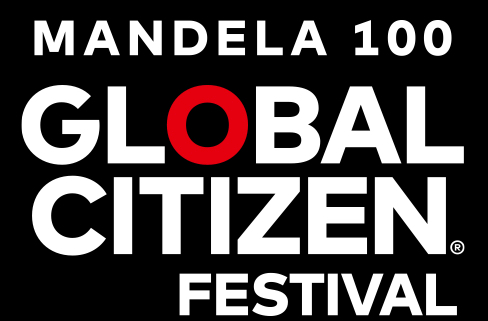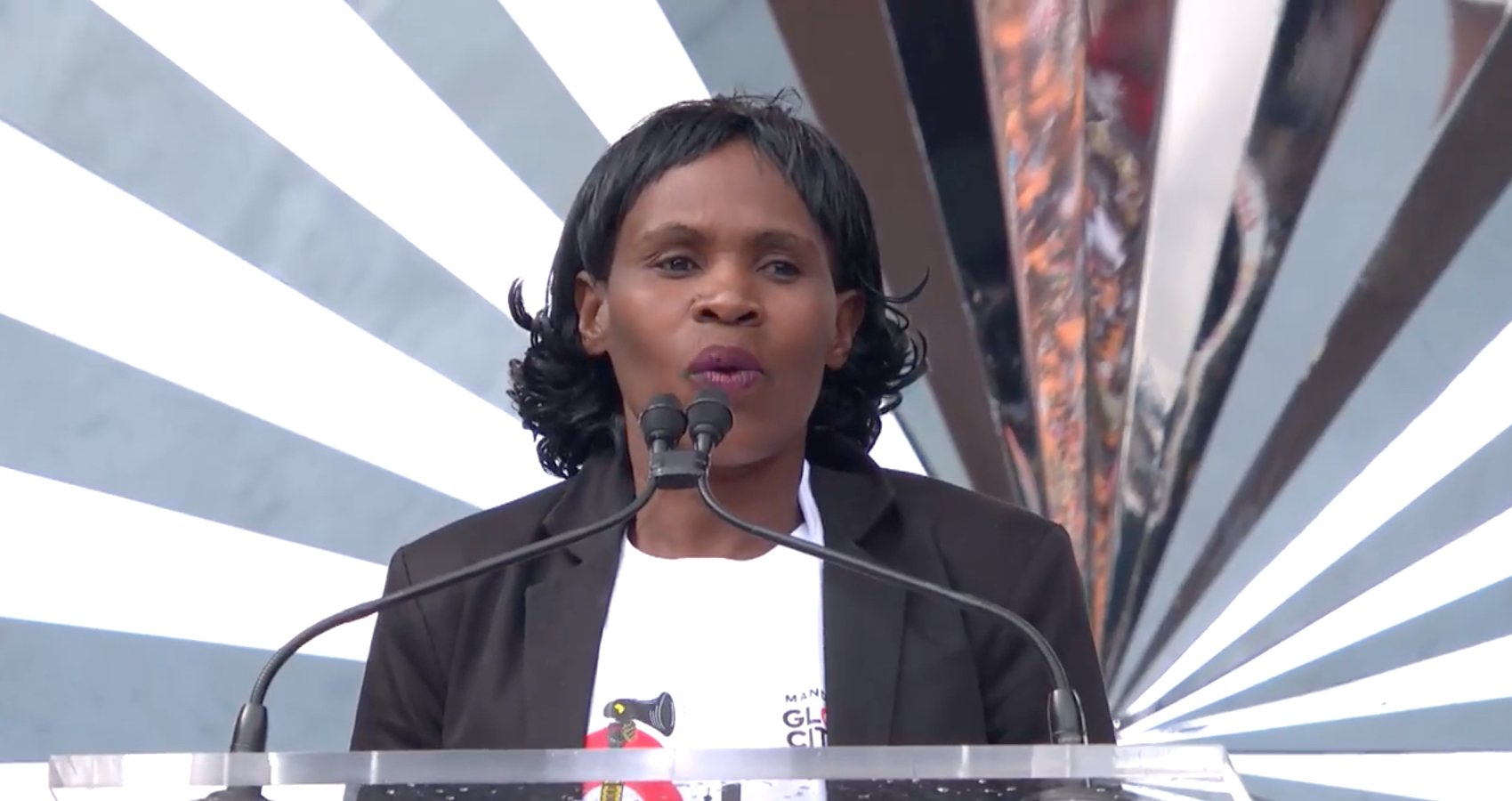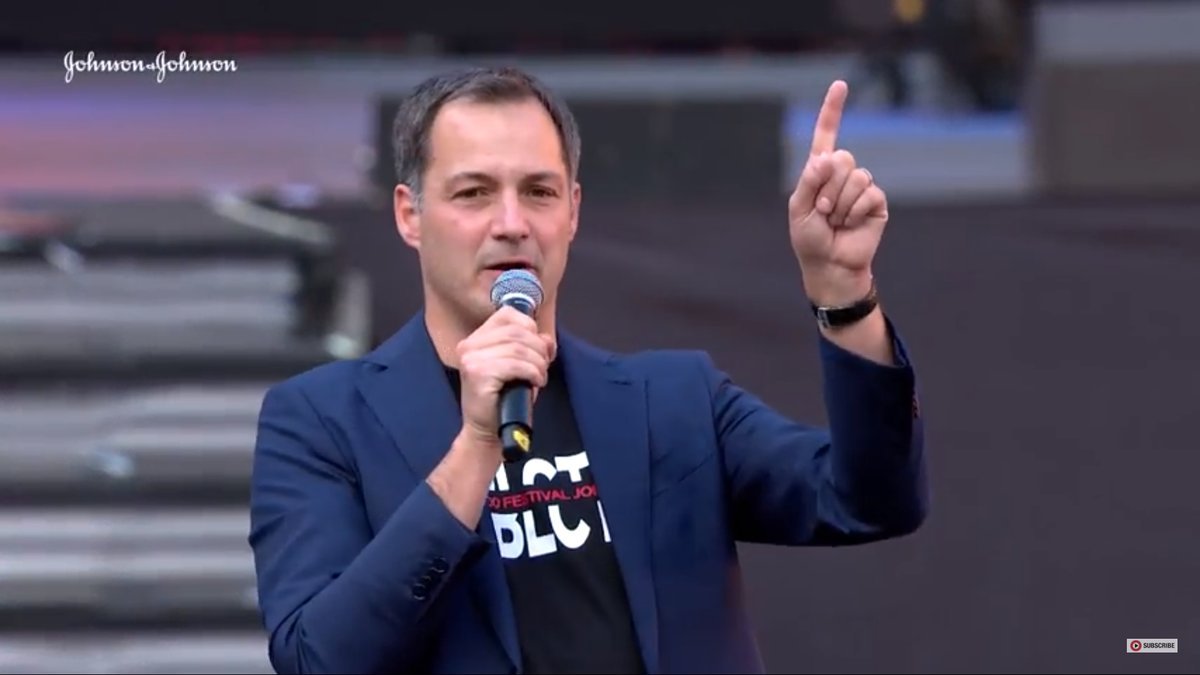
Johannesburg, December 2: Leading philanthropists as well as African and European governments have announced more than US$150 million to tackle neglected tropical diseases largely unknown in western countries, but which affect 1.5 billion people – or one in five on the planet. The over $150 million funding will unlock a total aid package worth many, many more times that sum thanks to the free donation of medicines from pharmaceutical companies.
The announcements to fund the prevention and treatment of neglected tropical diseases (NTDs) were made at a star-studded festival in Johannesburg, South Africa, co-hosted by the Government of South Africa, the House of Mandela, Motsepe Foundation, and the activist network Global Citizen.
The event, called Mandela 100 to honour Nelson Mandela, the anti-apartheid icon, in what is the centenary year of his birth, featured international artistes including Femi Kuti, Sho Madjozi, Beyonce, Jay Z and Ed Sheeran, amongst others. As with other Global Citizen events it was a unique mixture of fantastic music, speeches by politicians and messages about how to solve some of the problems of the world.
The festival was hosted by South African comedian and activist Trevor Noah.
“When we invest in eliminating neglected tropical diseases, we help more children stay in school and more adults earn a decent living in the world’s poorest communities.”
A total of nearly US$150 million in funding for neglected tropical diseases (NTDs) was announced at the concert, where total commitments worth over $7 billion dollars to support the UN Sustainable Development Goals were also announced.
$105 million came from a group of funders from the Audacious Project, who announced their commitment through global entrepreneur Sir Richard Branson. The Audacious Project, hosted by TED, brings together philanthropists committed to turn transformative ideas into action.
The commitments were made by: the Bill and Melinda Gates Foundation; the government of Mozambique; the governments of Belgium and Botswana; and a consortium of private donors associated with the philanthropic venture the END Fund.
NTDs such as blinding trachoma, river blindness and intestinal worms overwhelmingly affect the poorest and most marginalised people living in areas without running water or adequate sanitation. They stop children going to school and can rob adults of their most productive years of life. Great progress has been made in efforts against the diseases. Thanks to treatment, half a billion people no longer need interventions for NTDs. But one and a half billion are still in need of help.
Thanks to pharmaceutical companies donating medicines for NTDs for free, the $150m pledged at the festival will unlock a total aid package worth many, many times this figure. For every aid dollar invested in the distribution of medicines, $26 worth of donated drugs will be leveraged, making this the largest public-private partnership in global health.
The money announced at the festival will treat and protect some 300 million people from the effects of these diseases based on an average cost of delivering the necessary drugs of 50 US cents per treatment.
Community volunteer leads in festival
The part of the festival during which financial announcements for NTDs were made was opened by a community health volunteer from western Zambia, Precious Mukelabai. She is one of the thousands of dedicated community health volunteers around the world who work tirelessly connecting people with services.
Precious Mukelabai and her colleagues are an essential and critical component of fighting NTDs. Precious spoke movingly at the festival about her aunt who she recently helped connect with a surgeon who successfully operated on her eyes to prevent blindness.
The aunt had suffered from blinding trachoma, an NTD and the leading cause of infectious blindness in the world, for many years:
“Now my auntie has her smile again.”

Details of commitments
Of the total announced at the festival, over $105 million will be used to tackle blinding trachoma and infant mortality. Blinding trachoma is an extremely painful disease that causes eyelashes to turn inwards, scratching the eye with every blink. It is mainly prevalent in areas without clean running water or proper sanitation. If left untreated it can lead to irreversible blindness.
This funding to fight blinding trachoma was announced at the festival by the global entrepreneur Sir Richard Branson on behalf of a group of funders including the Bill & Melinda Gates Foundation, the Children’s Investment Fund Foundation, the ELMA Foundation (UK), UK Aid and Virgin Unite.
The money will be used by the UK-based charity Sightsavers and a network of partners to support at least ten African countries in eliminating blinding trachoma as a public health problem and speed up progress against the disease in several other African nations.
“We are thrilled to be working with our fellow Audacious Project partners, Sightsavers and brilliant organisations on the frontlines to collectively end the horrible plight of trachoma. We are also hoping that this will inspire other partners to join us to end trachoma and other neglected tropical diseases, and to come together to collaborate at scale to tackle other unacceptable issues like this that are destroying people’s lives and slowing down economic growth opportunities that will lift people out of poverty.”
“It is within our grasp to stop trachoma in its tracks. We are getting closer to the finish line – but the job is not yet done. This persistent disease traps people in lives of intense pain and poverty. But it is treatable and preventable.”
The festival in Johannesburg included several interventions from politicians, including a short speech between musical items from the Prime Minister of Mozambique, Carlos Agostinho do Rosário. He announced a significant contribution from the government in Maputo for the fight against several NTDs.
“I am pleased to announce $6 million to help the fight against river blindness, intestinal worms and elephantiasis. Together we can work to improve the health of everyone on our continent.”
A group of private sector philanthropists from countries around the world, including those endemic for NTDs like Zimbabwe and Nigeria, announced $15.5 million to the total announced at the festival. This money will allow the private philanthropic initiative, the END Fund, to continue its work investing in the fight against neglected tropical diseases.
“A pledge of $15.5 million to combat neglected tropical diseases through the END Fund shows the private sector’s confidence in, and commitment to, the notion that beating these diseases is a cost-effective way to boost people’s health, education, and prosperity. As a Nigerian who is personally committed to this cause, I look forward to my fellow Africans joining me in this effort, which stands to help further unlock our continent’s potential.”
‘Matching funds’ double commitments
The Bill & Melinda Gates Foundation, which has been at the forefront of the fight against neglected tropical diseases for many years, announced a contribution of $17 million to the World Health Organization in Africa over five years to fight the five most common neglected diseases on the African continent.
Of this, $17 million, $11 million is reserved for what the aid community calls ‘match funding’. This means the Gates Foundation will release the money if it is ‘matched’ (doubled) by another donor.
$5 million has already been ‘matched’ by the government of Belgium. $6 million is available for matching by other donors.
This money will help deliver medicines donated for free by pharmaceutical partners through support for a World Health Organization department called the Expanded Special Project for the Elimination of Neglected Tropical Diseases (ESPEN). This is a special project under the leadership of the regional director of the World Health Organization’s African Regional Office (WHO AFRO), Dr Matshidiso Moeti.
“When we invest in eliminating neglected tropical diseases, we help more children stay in school and more adults earn a decent living in the world’s poorest communities. That’s why we have pledged $17 million to the World Health Organization to beat these diseases in sub-Saharan Africa. We’re grateful to the government and people of Belgium for matching this pledge with a generous commitment of $5 million. Together, this will allow the delivery of donated medicines worth almost $300 million to more than 20 million people in need.”
“To step up the fight against neglected tropical diseases and break the vicious circle of poverty-disease-poverty, Belgium pledges $5 million to ESPEN, an amount that will be matched by the Bill & Melinda Gates Foundation. For every dollar invested, two treatments are delivered. This will improve the lives of 20 million people in Africa, in particular the lives of women, adolescent girls and children in the poorest and most marginalised communities.”

Welcoming the announcements to ESPEN and to the Africa programme more broadly, Dr Matshidiso Moeti said:
“600 million people are at risk of neglected tropical diseases in Africa. ESPEN is working with Ministries of Health and their partners to accelerate the elimination of NTDs and free the continent from this scourge. To achieve our goal, we’ll need to mobilise all our strengths from both public & private institutions. I am delighted to see the governments of Botswana, Belgium, and Mozambique, as well as the Bill & Melinda Gates Foundation lead by example and support the efforts of tireless health workers and partners across Africa. Only together can we achieve universal health coverage and change the lives of millions of people around the continent.”
Finally, it was announced at the festival that the government of Botswana would prioritise the prevention and treatment of neglected tropical diseases and provide the domestic resources required to fully fund its NTD programme and reach elimination goals. This announcement was not specified in dollar terms but would be a significant sum.
“In honour of Nelson Mandela I pledge on behalf of the government of Botswana to prioritise the prevention and treatment of all neglected tropical diseases and to provide the domestic resources necessary for their elimination. In line with this commitment, Botswana has begun the treatment of over 230,000 children in need of treatment for those diseases.”
Notes to Editors
For more information or to request interviews please contact:
Mark Doyle, Head of Communications, Uniting to Combat Neglected Tropical Diseases.
Mail: mark@unitingtocombatntds.org
Telephone and Whatsapp: +44 7736 480373
Photos: Please feel free to use photos here. Please credit Uniting to Combat Neglected Tropical Diseases. Captions are in the document also provided.
About Precious Mukelabai: Precious Mukelabai is a volunteer health worker from a small village in western Zambia. She attended the Mandela 100 festival as a speaker. A profile of her is here.
About Trachoma
Trachoma is an ancient disease depicted in hieroglyphs on historic Nubian tombs. But in recent years it has been eliminated as a public health problem by many countries across the world. Between 2013 and 2017 the proportion of people in need receiving preventive treatment more than doubled. The disease is relatively easily treated by simple surgery, antibiotics, facial cleanliness and a clean environment – but it is often hard to reach populations in need.
About the London Declaration on Neglected Tropical Diseases: The London Declaration on NTDs, launched on 30 January 2012, is a joint commitment to control, eliminate or eradicate 10 NTDs, signed by the UN World Health Organization (WHO), 13 pharmaceutical companies, donor nations, endemic country governments, the Bill & Melinda Gates Foundation and the World Bank.
The 10 diseases covered by the London Declaration are: river blindness, Guinea worm disease, elephantiasis, blinding trachoma, bilharzia, intestinal worms, leprosy, Chagas disease, visceral leishmaniasis and sleeping sickness.
In 2017 alone, pharmaceutical companies donated nearly 1.7 billion treatments to fight NTDs. The companies were: Bayer, Eisai, Gilead, GSK, Johnson & Johnson, Merck KGaA, MSD, Norvatis, Pfizer and Sanofi.
About Uniting to Combat Neglected Tropical Diseases
Established in 2012, Uniting to Combat NTDs is a global partnership of organisations committed to achieving the WHO’s 2020 goal to control and eliminate 10 NTDs as laid out in in the London Declaration. By working together, Uniting to Combat NTDs aims to chart a new course toward health and sustainability among the world’s poorest communities. Click here to find out more about the work of Uniting to Combat NTDs and to learn more about NTDs.
About ESPEN
The Expanded Special Project for Elimination of Neglected Tropical Diseases (ESPEN) was established in the spirit of partnership between WHO Regional Office for Africa (AFRO), member states and NTD partners in an effort to mobilise political, technical and financial resources to reduce the burden of the five most prevalent NTDs in Africa.
The five most prevalent NTDs in Africa are: lymphatic filariasis (also known as elephantiasis), river blindness (also known as onchocerciasis), intestinal worms (also known as soil-transmitted helminthiasis), bilharzia (also known as schistosomiasis) and blinding trachoma. With a secretariat based in WHO headquarters in Brazzaville, Republic of Congo, ESPEN also expands beyond that secretariat through the joint efforts of the entire NTD-fighting partnership in Africa. The project focuses on a data-driven approach to inform evidence-based action aimed at achieving elimination. The critical pillar of ESPEN is country ownership and leadership of their control and elimination programs, contributing to the broader WHO target of long-term sustainability and strengthening of health systems.
About the END Fund
The END Fund is the only private philanthropic initiative solely dedicated to ending the five most common NTDs. It efficiently puts private capital to work, advocating for NTD programs that are innovative, integrated, and cost-effective. It facilitates strong partnerships with the private sector and aims to support national disease control programs in over 29 countries.
Since its founding in 2012, with its partners, the END Fund has provided over 500 million donated treatments worth over $933 million, over 11,400 surgeries for people suffering from the effects of the advanced stages of elephantiasis and trachoma, and trained more than 1.1 million people in NTD control and elimination efforts.
About Sightsavers
Sightsavers is an international organisation that works in more than 30 developing countries to prevent blindness and restore sight. It advocates for social inclusion & equal rights for people with disabilities. It is a registered UK charity. There are 36 million blind people in the world; 75% of all blindness can be prevented or cured.
In the six decades since its foundation, Sightsavers has: supported over 1 billion treatments for neglected tropical diseases (of which over 550 million are for the potentially blinding diseases river blindness and trachoma); carried out over 9 million operations to restore sight; trained more than 500,000 primary eye care workers; conducted rehabilitation training for over 200,000 blind or low vision beneficiaries and supported over 50,000 blind or low vision children to gain a school education. www.sightsavers.org
About the Audacious Project
The Audacious Project was launched in April 2018, with a mission to foster “collaborative philanthropy for bold ideas”. Housed at TED, the non-profit is devoted to ideas worth spreading. The Audacious Project coalition is made up of leading organisations and individuals – among them the Skoll Foundation, Virgin Unite, Dalio Foundation, The Bridgespan Group and others.
This coalition sources and funds up to five critical projects annually – all with the potential to create global change. The Audacious Project empowers social entrepreneurs to dream boldly and take on the world’s biggest and most urgent challenges. The inaugural Audacious Project recipients include The Bail Project, Environmental Defense Fund, GirlTrek, Sightsavers, One Acre Fund, the Woods Hole Oceanographic Institution, Last Mile Health and Living Goods.
To learn more or to apply to The Audacious Project, visit www.audaciousproject.org